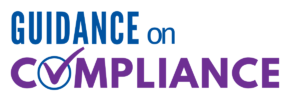The Centers for Medicare & Medicaid Services (CMS) has issued Memo QSO-25-14-NH, “Revised Long-Term Care (LTC) Surveyor Guidance: Significant revisions to enhance the quality and oversight of the LTC survey process,” with an effective date of April 28, 2025. One key revision pertains to the admission, transfer, and discharge agreement. In the memo, CMS clarified guidance prohibiting admission agreements from containing language that requests or requires a third-party guarantee of payment, adding examples of non-compliance.
According to the Code of Federal Regulations (CFR), Title 42, §483.15(a)(3), “The facility must not request or require a third party guarantee of payment to the facility as a condition of admission or expedited admission, or continued stay in the facility. However, the facility may request and require a resident representative who has legal access to a resident’s income or resources available to pay for facility care to sign a contract, without incurring personal financial liability, to provide facility payment from the resident’s income or resources.”
What it Means
Federal law has long prohibited nursing facilities from requiring a third-party guarantee of payment.
Nursing facilities can NOT:
- Ask or require a third party (such as a family member) to be personally responsible for payment.
- Even indirect or implied language, regardless of whether the word “guarantee” is used, implies that the third party will be liable for bills if the resident cannot pay.
- Condition the resident’s admission or continued stay on someone else agreeing to pay.
Nursing facilities may:
- Ask a resident representative (like a legal guardian or agent with power of attorney) with legal access to the resident’s finances to sign an agreement to use the resident’s funds to pay for care, but only without making that person liable.
Examples of Noncompliant Language
The following types of language in admission agreements or related documents are non-compliant:
- Language that makes the resident and a representative or other person jointly responsible for any amounts owed (only holding the resident responsible is compliant).
- Language that holds a representative personally liable for not completing the Medicaid application correctly or on time, or suggesting the representative is responsible if someone else uses the resident’s money.
- Language that suggests discharge could occur if a representative does not personally pay to avoid the discharge.
- Language that makes the representative or other individual liable for non-payment because of inaccurate financial disclosures or failure to notify the facility of changes in the resident’s finances.
Additionally, CMS makes it clear that the noncompliant language listed above is not allowed:
- In admission agreements.
- In any documents signed at the time of admission.
- In agreements related to a resident’s continued stay after admission.
What Is Allowed
- Nursing facilities may request or require a resident’s representative, such as someone with power of attorney, who has legal access to the resident’s funds, to sign an agreement to use those funds to pay for care. But, at no point can the representative be asked to personally cover the resident’s expenses, even if the facility believes the resident is at risk of nonpayment.
- Enter contracts with third-party payers like insurance companies; these are not considered “third-party guarantees” in this context.
Recommended Action Steps
With the revised guidance taking effect on April 28, 2025, nursing facilities must take proactive steps to:
- Review and revise admission packets, financial responsibility documents, and materials related to continued stays. Eliminate non-compliant language and clauses that could imply or assign personal financial responsibility to anyone other than the resident.
- Update policies and internal procedures, and align your policies with this updated guidance. Clarify roles, documentation protocols, and escalation procedures if payment issues arise after admission.
- Complete staff training. Admissions, billing, and other Interdisciplinary team members (IDT) should understand what is no longer allowed. Real-world examples and scripting can help avoid noncompliant language during conversations with families.
- Update processes and procedures to rely on legal action against residents or their estates to recover unpaid balances, not against family members or other representatives.
CMS’s updated guidance on third-party guarantees presents a valuable opportunity for nursing facilities to enhance their operations. By revising their approach to financial responsibility, operators and providers can promote fairness and transparency for residents. Protecting residents’ rights is essential, and providing thorough staff training on these updated guidelines will enable the team to uphold these standards effectively. Embracing these changes not only helps facilities avoid citations, damage to their reputation, or even legal issues.
LW Consulting, Inc. (LWCI) offers a comprehensive range of services that can assist your organization in maintaining compliance, identifying trends, providing education and training, or conducting documentation and coding audits. For more information, contact LWCI to connect with one of our experts!


